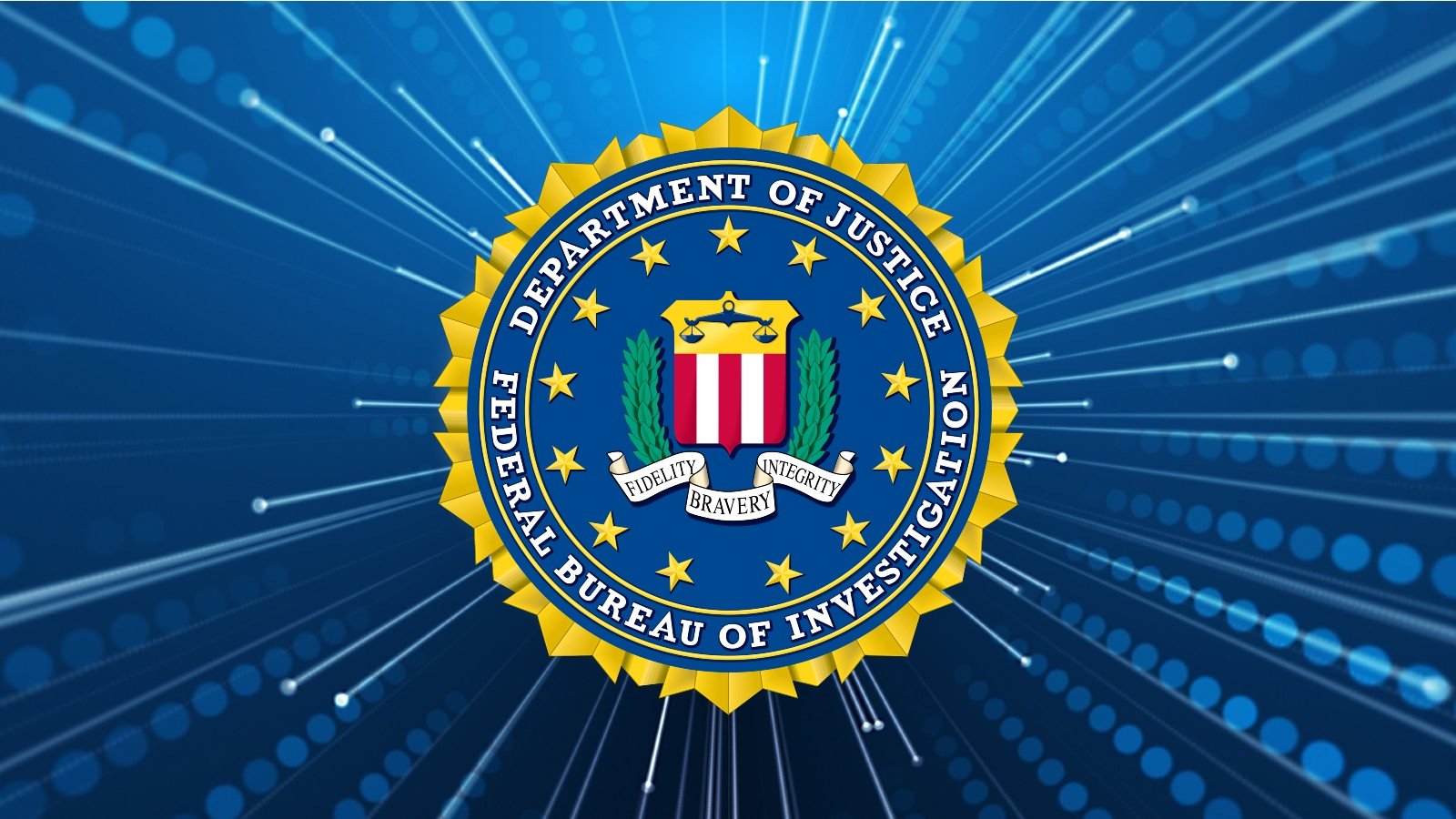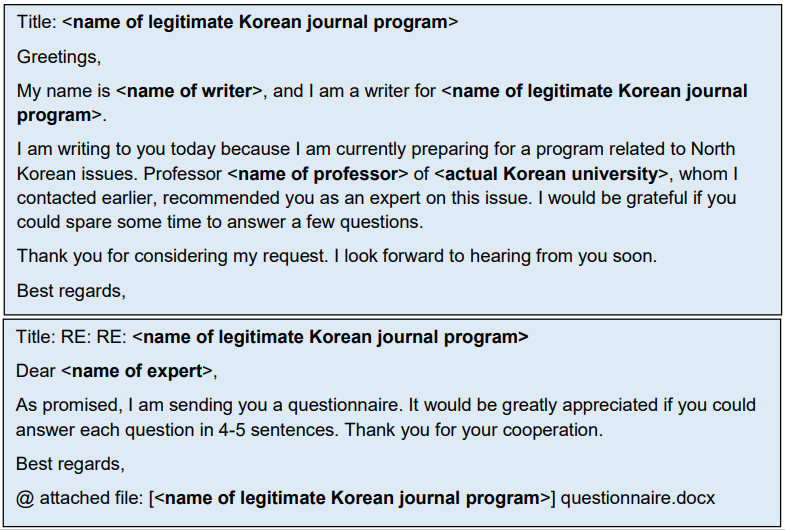[ad_1]

State-sponsored North Korean hacker group Kimsuky (a.ka. APT43) has been impersonating journalists and teachers for spear-phishing campaigns to gather intelligence from suppose tanks, analysis facilities, tutorial establishments, and varied media organizations.
The warning comes from a number of authorities businesses within the U.S. and South Korea who’re monitoring the hackers’ exercise and analyzed the group’s current campaigns and themes used for assaults.
A joint advisory from the Federal Bureau of Investigation (FBI), the U.S. Division of State, the Nationwide Safety Company (NSA), alongside South Korea’s Nationwide Intelligence Service (NIS), Nationwide Police Company (NPA), and Ministry of Overseas Affairs (MOFA), notes that Kimsuky is a part of North Korea’s Reconnaissance Basic Bureau (RGB).
Also referred to as Thallium and Velvet Chollima, Kimsuky has performed large-scale espionage campaigns supporting the nationwide intelligence targets since a minimum of 2012.
“Some focused entities could low cost the menace posed by these social engineering campaigns, both as a result of they don’t understand their analysis and communications as delicate in nature, or as a result of they aren’t conscious of how these efforts gasoline the regime’s broader cyber espionage efforts,” reads the advisory.
“Nonetheless, […] North Korea depends closely on intelligence gained by compromising coverage analysts […] (and) profitable compromises allow Kimsuky actors to craft extra credible and efficient spear-phishing emails that may be leveraged in opposition to extra delicate, higher-value targets.”
Spear-phishing as journalists
Kimsuky hackers meticulously plan and execute their spear-phishing assaults by utilizing e mail addresses that carefully resemble these of actual people and by crafting convincing, lifelike content material for the communication with the goal.
“For over a decade, Kimsuky actors have continued to refine their social engineering strategies and made their spear-phishing efforts more and more tough to discern,” warns the advisory.
In lots of instances, the hackers impersonate journalists and writers to inquire about present political occasions within the Korean peninsula, the North Korean weapons program, U.S. talks, China’s stance, and extra.
Among the many themes noticed are inquiries, invites for interview, an ongoing survey, and requests for reviews or to overview paperwork.
The preliminary emails are often freed from malware or any attachments, as their position is to realize the goal’s belief reasonably than obtain a fast compromise.
If the goal doesn’t reply to those emails, Kimsuky returns with a follow-up message after a few days.
The FBI says that regardless of the adversary’s efforts, the English emails typically have an sentence construction and could comprise complete excerpts from the sufferer’s earlier communication with official contacts, which had been stolen.

supply: U.S. Authorities
When the goal is South Korean, the phishing message may comprise a definite North Korean dialect.
Additionally, the addresses used for sending phishing emails spoof these of official individuals or entities; nevertheless, they at all times comprise refined misspellings.
Easy methods to cease Kimsuky
The advisory gives a set of mitigation measures, which embrace utilizing sturdy passwords to guard accounts and enabling multi-factor (MFA) authentication.
Moreover, customers are suggested to not allow macros on paperwork in emails despatched by unknown people, it doesn’t matter what the messages declare.
The identical warning needs to be utilized with paperwork despatched from recognized cloud internet hosting providers, because the legitimacy of the platforms doesn’t represent a assure of the security of these recordsdata.
When unsure a couple of message claiming to return from a media group or journalist, go to that group’s official web site and make sure the validity of the contact info.
The joint advisory recommends conducting a preliminary video name as an efficient technique to disperse any uncertainty of potential impersonation earlier than deciding to have interaction in additional communication.
[ad_2]